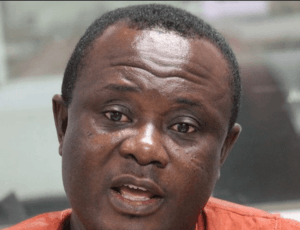Parliament to invite Ministers over waste and sanitation management failures

A national waste and sanitation disaster looms, and Parliament on Tuesday invited two Ministers to appear before it within a week to appraise it on off-take contracts arrangements for waste management.
First Deputy Speaker of Parliament Joseph Osei-Owusu directed the Leadership of the House to liaise with the Ministers of Sanitation and Water Resources, and Local Government and Rural Development and programme them for the proposed meeting, possibly before the Committee on the Whole for a briefing.
The outcome of the intended briefing would help Parliament to see what it could do to support the Government in speeding up the finalisation of the management arrangement with the Accra Integrated Recycling Plant (IRECOP) to enable it to fully commence operation.
The IRECOP has built two recycling plants in Accra and Kumasi, and IRECOP has since April 2019, been receiving and processing waste from its catchment area, but the Government has not signed the respective off taker-management agreement required for the operation of the facilities.
The meeting has become necessary as the House discussed the problem of waste management during which it came out that the waste and sanitation challenges had assumed monumental and gargantuan levels, with the threat of looming national disaster.
The discussion was to debate and adopt a report of a joint Committee on Local Government and Rural Development, Works and Housing, and Environment, Science and Technology on the State of Waste Management Situation in the Country.
The joint Committees’ report were on visits to some landfills sites across the country following an inferno that engulfed the Tema Metropolitan Assembly Engineered Landfill site at Kpone last August, and a subsequent explosion, for which there were consistent complaints to Members of Parliament by constituents and civil society organizations.
This triggered the investigation to ascertain the magnitude of the problem.
The Committees visited the landfill sites in Kumasi, Tema (Kpone), Tamale and Takoradi; and inspected some private waste management facilities, including; Accra Integrated Recycling and Compost Plant (IRECOP), Kumasi Integrated Compost and Recycling Plant, Accra Waste Recovery Park, Kotoku Faecal Treatment Plant at Adjen Kotoku, Accra Compost Plant (ACARP), Mudor Sewerage Treatment Plant, Mudor and Universal Plastics Product and Recycling Limited (UPPRL).
The joint Committees said it used evidence-based approach, physical verification, and were briefed alongside presentations by officials from the Assemblies and the managers of the sites at each location visited.
They reported: “Preliminary investigations conducted showed that landfill sites across the country were in a similar precarious state and if urgent measures were not taken, what happened at the Kpone Landfill in Tema may replicate in other regions.”
While indicating that the journey towards sustainable waste management may be a long one, the joint Committees recommended a strong commitment from the Government and all stakeholders to take the necessary steps to inject the needed capital into the sector, in addition to other measures bring the problem under check.
The Committees noted a number of landfills in Ghana were not re-engineered, encouraging open pit waste dumping with no leachate control, scant application of cover material, open access to scavenging animals, rodents and other disease vectors.
“With mounting pressure due to public anger with the siting of landfills, increasing environmental awareness, scarcity of land among other factors means that municipal authorities must find a way of moving away from landfill practice or at least reduce the waste destined for landfills,” the Committees recommended in the report.
It added: “Ultimately, the way forward for waste management is to place emphasis on diverting biodegradable and recyclable waste fraction away from landfills, using modern innovative treatment techniques.”
It called for the payment of the right $35 per tonnne of garbage rather than the present $5 being paid to waste management companies.
Also, “the Committee recommends the establishment of at least one integrated recycling and compost plant in each Region in the country,” with some benefits as reducing Government’s import bill on fertilisers, creation of direct and indirect jobs for people in the Regions, reduce the pressure on landfill sites, and ensure a clean environment that would boost tourism in the Regions.
Source: GNA
